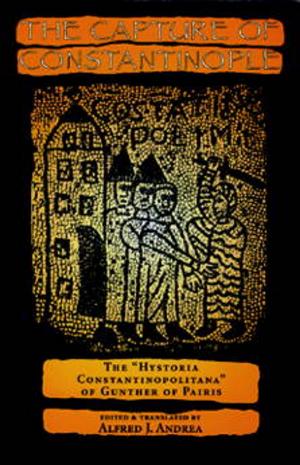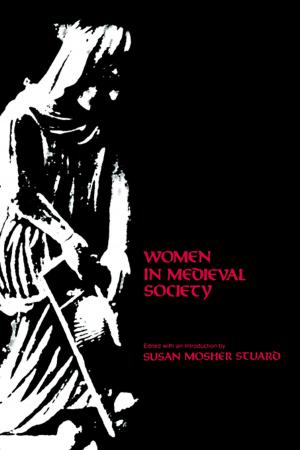Sisters and Brothers of the Common Life
The Devotio Moderna and the World of the Later Middle Ages
Nonfiction, Religion & Spirituality, Christianity, Church, Church History, History, Medieval| Author: | John Van Engen | ISBN: | 9780812290059 |
| Publisher: | University of Pennsylvania Press, Inc. | Publication: | October 9, 2013 |
| Imprint: | University of Pennsylvania Press | Language: | English |
| Author: | John Van Engen |
| ISBN: | 9780812290059 |
| Publisher: | University of Pennsylvania Press, Inc. |
| Publication: | October 9, 2013 |
| Imprint: | University of Pennsylvania Press |
| Language: | English |
The Devotio Moderna, or Modern Devout, puzzled their contemporaries. Beginning in the 1380s in market towns along the Ijssel River of the east-central Netherlands and in the county of Holland, they formed households organized as communes and forged lives centered on private devotion. They lived on city streets alongside their neighbors, managed properties and rents in common, and worked in the textile and book trades, all the while refusing to profess vows as members of any religious order or to acquire spouses and personal property as lay citizens. They defended their self-designed style of life as exemplary and sustained it in the face of opposition, their women labeled "beguines" and their men "lollards," both meant as derogatory terms. Yet the movement grew, drawing in women and schoolboys, priests and laymen, and spreading outward toward Münster, Flanders, and Cologne.
The Devout were arguably more culturally significant than the Lollards and Beguines, yet they have commanded far less scholarly attention in English. John Van Engen's magisterial book keeps the Modern Devout at its center and thinks through their story anew. Few interpreters have read the Devout so insistently within their own time and space by looking to the social and religious conditions that marked towns and parishes in northern Europe during the fifteenth century and examining the widespread upheavals in cultural and religious life between the 1370s and the 1440s. In Sisters and Brothers of the Common Life, Van Engen grasps the Devout in their humanity, communities, and beliefs, and places them firmly within the urban societies of the Low Countries and the cultures we call late medieval.
The Devotio Moderna, or Modern Devout, puzzled their contemporaries. Beginning in the 1380s in market towns along the Ijssel River of the east-central Netherlands and in the county of Holland, they formed households organized as communes and forged lives centered on private devotion. They lived on city streets alongside their neighbors, managed properties and rents in common, and worked in the textile and book trades, all the while refusing to profess vows as members of any religious order or to acquire spouses and personal property as lay citizens. They defended their self-designed style of life as exemplary and sustained it in the face of opposition, their women labeled "beguines" and their men "lollards," both meant as derogatory terms. Yet the movement grew, drawing in women and schoolboys, priests and laymen, and spreading outward toward Münster, Flanders, and Cologne.
The Devout were arguably more culturally significant than the Lollards and Beguines, yet they have commanded far less scholarly attention in English. John Van Engen's magisterial book keeps the Modern Devout at its center and thinks through their story anew. Few interpreters have read the Devout so insistently within their own time and space by looking to the social and religious conditions that marked towns and parishes in northern Europe during the fifteenth century and examining the widespread upheavals in cultural and religious life between the 1370s and the 1440s. In Sisters and Brothers of the Common Life, Van Engen grasps the Devout in their humanity, communities, and beliefs, and places them firmly within the urban societies of the Low Countries and the cultures we call late medieval.















